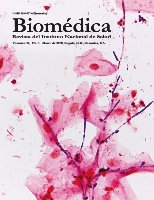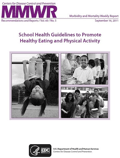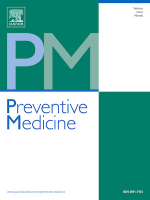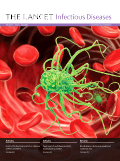
Lancet Regional Health-Western Pacific
Scope & Guideline
Innovative Research for a Healthier Tomorrow
Introduction
Aims and Scopes
- Public Health and Epidemiology:
The journal emphasizes research on public health issues, including the epidemiology of diseases, health system performance, and population health metrics across the Western Pacific. - Non-communicable Diseases (NCDs):
A significant focus on the burden of non-communicable diseases, their risk factors, and prevention strategies is evident, aiming to improve health outcomes in the region. - Infectious Diseases and Vaccination:
The journal covers studies on infectious diseases, including vaccination strategies and the management of outbreaks, particularly in relation to COVID-19 and other communicable diseases. - Mental Health and Well-being:
Research on mental health, particularly in the context of social determinants and the impact of crises like the COVID-19 pandemic, is a critical area of focus. - Health Equity and Social Determinants:
The journal emphasizes the importance of health equity, exploring disparities in health outcomes and access to healthcare services across different populations in the Western Pacific. - Health Policy and Systems Research:
Research that informs health policy and system improvements, particularly in resource-limited settings, is a core component of the journal's scope. - Environmental Health:
The journal addresses the intersection of environmental factors and health, including the impacts of climate change and pollution on health outcomes.
Trending and Emerging
- COVID-19 Impact Studies:
Research addressing the direct and indirect impacts of COVID-19, including mental health effects, healthcare system responses, and vaccination strategies, has surged, reflecting the pandemic's ongoing relevance. - Climate Change and Health:
There is a growing body of work focusing on the health impacts of climate change, including studies on heat-related illnesses and environmental health, indicating an emerging priority in public health. - Mental Health and Resilience:
Emerging themes include mental health resilience, particularly in the context of crises such as the COVID-19 pandemic, highlighting a need for integrated mental health services. - Digital Health Innovations:
The use of digital health technologies and telemedicine has gained traction, especially in managing chronic diseases and mental health, indicating a shift towards more tech-driven healthcare solutions. - Health Equity Research:
There is an increasing focus on health equity, addressing social determinants of health, and understanding disparities among different population groups in the Western Pacific. - Integrated Care Models:
Research on integrated care models for managing chronic diseases and improving healthcare delivery systems is gaining momentum, reflecting a shift towards holistic approaches in health management.
Declining or Waning
- Traditional Infectious Disease Research:
There seems to be a waning focus on traditional infectious disease research that does not relate to emerging threats, as more attention shifts towards contemporary issues like COVID-19 and its long-term impacts. - Basic Biomedical Research:
There is a reduced emphasis on basic biomedical research and laboratory studies, with a stronger inclination towards applied research that impacts health policy and practice directly. - Chronic Disease Management:
Research specifically centered on chronic disease management without a focus on integration into broader health systems or policy implications appears to be less prevalent. - Historical Epidemiological Studies:
There is a noticeable decline in studies that focus solely on historical epidemiological trends without providing actionable insights for current health challenges.
Similar Journals

Biomedica
Elevating research standards in the life sciences.Biomedica is a distinguished journal published by the Instituto Nacional de Salud in Colombia, dedicated to advancing knowledge within the fields of biochemistry, genetics, molecular biology, and general medicine. Since its inception in 1981, this Open Access journal has embodied a commitment to disseminating high-quality research, ensuring free and universal access to its published works. With an impressive Scopus Ranking—273rd out of 636 in Medicine and 148th out of 221 in Biochemistry, Genetics and Molecular Biology—Biomedica holds a Q3 category in both disciplines as of 2023, reflecting its growing impact and relevance in the scientific community. The journal welcomes contributions that further our understanding and lead to advancements in healthcare and biological sciences, serving as a critical resource for researchers, professionals, and students alike. The journal operates within a continuous publication model from 2001 to 2024, enriching the academic landscape with contemporary findings and fostering collaboration within the biomedical field.

Lancet Regional Health-Europe
Transforming Health Systems Through Innovative ResearchThe Lancet Regional Health-Europe is a prestigious academic journal published by Elsevier, dedicated to advancing research in the fields of Health Policy, Internal Medicine, and Oncology. As part of a reputable series that focuses on regional health issues, it aims to publish high-quality, peer-reviewed articles that contribute to the understanding and improvement of health systems across Europe. With an impressive impact factor reflected in its Q1 quartile rankings for 2023—ranking #2 in Health Policy, #8 in Internal Medicine, and #22 in Oncology—it is recognized for its significant contribution to cutting-edge research. The journal offers open access options, ensuring that findings are widely disseminated and accessible to researchers, healthcare professionals, and policy-makers alike. By fostering collaboration and interdisciplinary discourse, The Lancet Regional Health-Europe serves as an essential platform for innovative solutions and strategies in health care that address the unique challenges faced within the European context, making it an invaluable resource for academics and practitioners dedicated to public health advancement.

MMWR-MORBIDITY AND MORTALITY WEEKLY REPORT
Transforming Health Insights into ActionMMWR-Morbidity and Mortality Weekly Report, published by the Centers for Disease Control and Prevention (CDC), stands as a preeminent journal in the fields of epidemiology, health information management, and public health. With an impressive reputation bolstered by an H-index reflecting its influence, MMWR is recognized as a Q1 journal as of 2023 across multiple health-related categories. Given its ranking in the 99th percentile among its peers, it provides critical insights and reports that shape health policy and practice globally. The journal is accessed freely by the research community, ensuring that key findings related to morbidity and mortality are widely disseminated and utilized. Established in 1981 and continuing through to 2024, MMWR remains an essential resource for researchers, health professionals, and students dedicated to understanding and combating health issues in the United States and beyond. Its ongoing contributions to the public health dialogue illustrate the journal's pivotal role in promoting health awareness and safety.

Epidemiology and Health
Championing open access to vital epidemiological research.Welcome to Epidemiology and Health, a premier open-access journal dedicated to advancing knowledge in the fields of epidemiology and public health. Published by the Korean Society of Epidemiology since 1979, this journal serves as a vital platform for researchers, professionals, and students alike, promoting innovative research and robust discussion surrounding public health issues. Based in South Korea, it boasts a commendable Q2 ranking in the categories of Epidemiology, Public Health, and Environmental and Occupational Health, reflecting its significant contribution to the scientific community. With its current impact factor ranking it favorably among peers—#124 out of 665 in Public Health and #40 out of 148 in Epidemiology—Epidemiology and Health continues to uphold its mission of disseminating high-quality, peer-reviewed research. The journal's commitment to open access ensures that vital epidemiological insights reach a broad audience, supporting the collective goal of improving global health outcomes. Engage with pioneering studies and emerging trends within these critical fields, as we work towards a healthier future.

Lancet Regional Health-Americas
Connecting Knowledge and Practice in the Americas' Health LandscapeLancet Regional Health-Americas is a premier open-access journal published by ELSEVIER, dedicated to advancing knowledge in the fields of health policy, internal medicine, and public health within the Americas. Established in 2021, this journal has quickly risen to prominence, achieving Q1 status in renowned categories such as Health Policy, Internal Medicine, and Public Health, Environmental and Occupational Health as of 2023. With impressive rankings, including a placement of #25 out of 310 in Health Policy and #68 out of 665 in Public Health, this journal exemplifies a commitment to impactful research and dissemination of critical health knowledge. The journal is accessible to a broad audience and promotes open scientific dialogue and exchange of innovative solutions to regional health challenges. Researchers, professionals, and students alike will find Lancet Regional Health-Americas a vital resource for the latest developments and discussions shaping the health landscape in the Americas.

Global Health Research and Policy
Connecting research and policy for global impact.Global Health Research and Policy, published by BMC, is a leading open-access journal dedicated to advancing the field of global health through impactful research and policy analysis. Since its establishment in 2016, the journal has garnered a prestigious reputation, achieving a Q1 ranking across several categories including Epidemiology, Health Policy, Health (social science), and Public Health, Environmental and Occupational Health in 2023. With an E-ISSN of 2397-0642, this UK-based journal ensures the dissemination of high-quality research to a global audience, promoting accessibility and collaboration. The open-access model facilitates the sharing of knowledge and innovation essential for addressing pressing health challenges worldwide. Researchers, professionals, and students alike will find valuable insights and relevant policy discussions in each issue, making Global Health Research and Policy a vital resource for those committed to improving health outcomes on a global scale.

Central European Journal of Public Health
Exploring Health Dynamics Across Central EuropeThe Central European Journal of Public Health, ISSN 1210-7778 and E-ISSN 1803-1048, is a vital academic forum published by the NATIONAL INSTITUTE OF PUBLIC HEALTH, Czech Republic. With its comprehensive coverage of contemporary issues in public health and medicine since its inception in 1993, this journal aims to bridge the gap between research and practice, fostering a deeper understanding of health dynamics within Central Europe and beyond. As a Q3 ranked journal in both the fields of Medicine (miscellaneous) and Public Health, Environmental and Occupational Health as per 2023 metrics, it provides an accessible platform for innovative studies, policy analyses, and reviews that contribute to the global discourse on public health challenges. Though primarily based in the Czech Republic, it welcomes contributions from a worldwide audience, enhancing its scope and impact. Researchers, practitioners, and students will find invaluable insights that not only enrich academic scholarship but also inform effective public health interventions.

JMIR Public Health and Surveillance
Driving innovation in health surveillance and population metrics.JMIR Public Health and Surveillance is a premier open access journal that has been at the forefront of public health research since its inception in 2015. Published by JMIR PUBLICATIONS, INC in Canada, this journal holds an impressive Q1 ranking in both Health Informatics and Public Health, Environmental and Occupational Health as of 2023. With a commendable Scopus Rank of #18 out of 665 in Public Health and #10 out of 138 in Health Informatics, JMIR Public Health and Surveillance stands out for its rigorous peer-reviewed articles that contribute significantly to the advancement of knowledge in these vital fields. The journal is committed to promoting research that advances the understanding and surveillance of health trends, disease outbreaks, and population health metrics, thus serving as an invaluable resource for researchers, professionals, and students alike. By facilitating open access to high-quality content, it ensures that results of critical public health research are readily available, ultimately helping to inform policy and public health initiatives across the globe.

Preventive Medicine
Shaping tomorrow's public health through rigorous research.Preventive Medicine is a premier academic journal published by Academic Press Inc Elsevier Science, renowned for its influential contributions to the fields of Epidemiology and Public Health. Since its inception in 1946 and through its dedicated issues leading into 2024, the journal has established itself as a leading platform for cutting-edge research, boasting impressive Scopus rankings, with a notable Q1 status across relevant categories. This journal provides an essential forum for scholars, practitioners, and policy-makers interested in the prevention of diseases and the promotion of health within populations. With each issue, it disseminates valuable insights on preventive strategies, health behaviors, and epidemiological trends, making it crucial for anyone invested in the advancement of public health sciences. The journal does not offer open access options, ensuring that content remains relevant and targeted to its scholarly audience. Given its valuable contributions and recognition in the academic community, Preventive Medicine continues to play a pivotal role in shaping evidence-based approaches to health promotion and disease prevention in modern societal contexts.

LANCET INFECTIOUS DISEASES
Advancing the Frontiers of Infectious Disease ResearchLANCET INFECTIOUS DISEASES is a premier journal published by Elsevier Science Ltd, dedicated to disseminating high-quality research and comprehensive reviews in the field of infectious diseases. Since its inception in 2001, the journal has become a pivotal resource in the medical community, recognized for its rigorous peer-review process and impactful contributions to public health. With an impressive Scopus rank of #2 out of 344 in the category of Medicine - Infectious Diseases, it consistently ranks in the 99th percentile, highlighting its importance and influence in shaping clinical and epidemiological research. The journal's commitment to advancing knowledge in infectious diseases is underscored by its Q1 quartile designation in 2023, affirming its status as a leading academic outlet. Although not an open-access journal, LANCET INFECTIOUS DISEASES provides essential insights for researchers, healthcare professionals, and students, bridging the gap between cutting-edge research and practical application in an increasingly interconnected world.